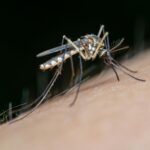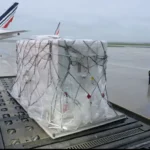WCS and Congo sign High-Integrity Forest Investment initiative MoU

Agreement reached at ongoing COP28 in Dubai
The Government of Congo, represented by the Ministry of Forest Economy, and the Wildlife Conservation Society (WCS) have signed a Memorandum of Understanding to launch a new programme to attract investment in the conservation of high-integrity tropical forests in the Nouabalé-Ndoki National Park.
Investors or buyers of these assets could make various contribution claims linked to climate change mitigation, biodiversity conservation and social values. The assets are not carbon offsets and are not eligible for offset claims or offset markets.
The MoU was signed on December 4, 2023, on the sidelines of COP28, which is currently taking place at Expo City Dubai in the United Arab Emirates.
Ecological integrity
The newly endorsed initiative considers the importance of ecological integrity to biodiversity conservation and ecosystem services, including climate regulation.
WCS runs the world’s largest conservation programme, protecting over 50% of the Earth’s known biodiversity, in partnership with governments, Indigenous Peoples, local communities and the private sector.
According to the WCS, high-integrity tropical rainforests represent 40% of the world’s remaining tropical forests and are the most biodiverse ecosystems. They are home to more than half of all known plant and animal species and support the livelihoods of millions of local communities and Indigenous Peoples.
Tropical rainforests are also an essential part of nature’s climate infrastructure, storing and removing massive amounts of carbon from the atmosphere, shaping the hydrological cycle and atmospheric circulation on which much of the world’s food production depends, and reducing temperatures and the impact of droughts and floods at local and regional scales.
Left out
Nevertheless, their ecosystem services do not fit into the logic of carbon offset markets and are taken for granted in most existing climate models and financing mechanisms.
Rosalie Matondo, Minister of Forest Economy of the Republic of Congo, said: “The government of the Republic of Congo, through the Ministry of Forest Economy, is committed to promoting the new financing mechanism for protecting high-integrity forests (HIFOR).
“I would like to express my deep gratitude to WCS for its interest in finding appropriate solutions for biodiversity conservation and enhancement, including the HIFOR investment initiative, by giving a monetary value to the absorption of carbon dioxide by high-integrity forests.
“The Government of the Republic of Congo, through me, confirms to the Wildlife Conservation Society its commitment to collaborate within the framework of this new initiative, to raise its ambition on issues linked to biodiversity conservation and the fight against climate change in the Congo Basin.”
With its partners, WCS aims to create a new HIFOR asset class, pilot the approach at several sites (notably in the Amazon and Congo basins) and set up a system to enable it to be extended and adopted in other geographical areas and by other organisations.
Daniel Zarin, WCS Executive Director for Forests and Climate Change, said: “The Congo Basin contains some of the world’s most important high-integrity forests and peatlands, making it a critical geography for climate change mitigation and adaptation, as well as biodiversity conservation.
“WCS is keen to work with the government of the Republic of Congo to pilot a mechanism tailored to financing the protection of high-integrity forests based on their value in terms of climate and biodiversity. We aim to encourage the Congolese government and people to pursue sustainable, nature-friendly economic development, in keeping with their historic role in conserving tropical forests, Indigenous cultures and the biodiversity they harbour.”
First pilot project
The first pilot project to be developed in Congo will be the Nouabale-Ndoki National Park, managed by the Nouabale-Ndoki Foundation, a partnership between the Congolese government and WCS.
Other pilot projects in Congo will be jointly examined and evaluated using the methodological criteria developed for the HIFOR initiative.
WCS combines the power of its New York zoos and aquarium with a global conservation programme in more than 50 countries to achieve its mission of saving wildlife. Its four zoos and aquariums (Bronx Zoo, Central Park Zoo, Queens Zoo, Prospect Park Zoo and New York Aquarium) welcome over 3.5 million visitors annually.
Featured image: (L-R) Joe Walston, Executive Vice President of Wildlife Conservation Society’s Global Conservation Programme, with Rosalie Matondo, Minister of Forest Economy of the Republic of Congo. Image: Kathleen Stilson/WCS












